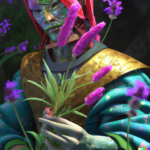Salvia, a potent psychoactive plant, has sparked controversy and debate regarding its legality and effects. In this comprehensive article, we will delve into the various aspects of Salvia, including its effects, legal status in South Dakota, potential alternatives, and crucial safety tips for users.
We will explore the short-term and long-term effects of Salvia, the laws and regulations surrounding its possession, sale, and distribution in South Dakota, as well as the penalties for violating these laws. We will discuss legal substitutes and natural alternatives to Salvia, enabling readers to make informed choices.
We will provide essential information on staying safe while using Salvia, including precautions to take before use, signs of overdose, and resources for seeking help with Salvia addiction in South Dakota. This article aims to equip readers with the knowledge and understanding necessary to navigate the complex landscape of Salvia use and legality.
What Is Salvia?
Salvia is a psychoactive substance derived from the Salvia plant, known for its hallucinogenic properties and mind-altering effects.
It is native to Mexico and has been traditionally used by indigenous tribes in spiritual and shamanic rituals. The plant is relatively easy to grow, requiring well-drained soil, partial shade, and moderate watering.
Salvia is typically consumed by smoking its dried leaves or using concentrated extracts. Its effects can range from intense visual and sensory distortions to altered perceptions of time and space. Due to its potent psychoactive nature, caution should be exercised when using Salvia, as its effects can vary greatly from person to person.
What Are the Effects of Salvia?
The effects of Salvia can manifest in both short-term and long-term experiences, impacting cognitive functions and perceptual awareness.
What Are the Short-Term Effects of Salvia?
Short-term effects of Salvia include altered perception, mood changes, and in some cases, hallucinations, often triggered by immediate usage of the substance.
Altered perception may cause the user to experience distorted visuals, such as objects appearing larger or smaller than they are. Mood changes commonly involve feelings of euphoria, relaxation, or anxiousness, which can fluctuate rapidly.
Hallucinations, when they occur, may involve seeing unrealistic imagery, feeling detached from reality, or experiencing a sense of time distortion. These immediate effects can vary in intensity depending on factors such as dosage, individual sensitivity, and the specific strain of Salvia used.
What Are the Long-Term Effects of Salvia?
Long-term usage of Salvia may lead to persistent perceptual changes, altered cognitive functions, and potential psychological impacts, posing risks to prolonged users.
These sustained effects on perception and cognition could manifest as disturbances in sensory processing, memory, and attention, impacting an individual’s daily functioning. Long-term use of Salvia has been associated with an increased risk of developing anxiety, depression, and other mood disorders. Studies have also shown potential links between prolonged Salvia consumption and impaired decision-making abilities, as well as diminished emotional regulation. These findings warrant consideration for the potential long-term consequences of Salvia use on an individual’s mental well-being.
Is Salvia Legal in South Dakota?
The legality of Salvia in South Dakota is subject to specific regulations and laws governing its possession, cultivation, sale, and purchase within the state.
While some states in the U.S. have imposed strict bans on the use and distribution of Salvia, South Dakota currently does not have specific laws addressing the substance. It is important to note that the federal government classifies Salvia as a Schedule I controlled substance, which means that it is illegal to possess, sell, or cultivate it at the federal level. Individuals in South Dakota should be cautious as they navigate the legal landscape surrounding Salvia to ensure compliance with both state and federal regulations.
What Are the Laws and Regulations Surrounding Salvia in South Dakota?
The laws and regulations surrounding Salvia in South Dakota are designed to control its distribution, usage, and cultivation, aligning with state-specific legal frameworks.
Salvia is classified as a controlled substance in South Dakota, with laws focusing on preventing its misuse and potential harmful effects. The state strictly prohibits Salvia’s distribution to minors and enforces penalties for illegal cultivation and trafficking. In line with this, South Dakota upholds stringent regulations for the sale and possession of Salvia, emphasizing public safety and health.
By imposing these measures, the state aims to manage the risks associated with Salvia and safeguard its residents from potential harm.
Is Possession, Sale, and Distribution of Salvia Legal in South Dakota?
The possession, sale, and distribution of Salvia in South Dakota are subject to legal restrictions and prohibitions, with specific penalties for violating established laws.
These regulations stem from the categorization of Salvia as a controlled substance in South Dakota. Possessing, selling, or distributing Salvia can result in misdemeanor charges, fines, and possible imprisonment.
The state prohibits the sale of Salvia to individuals under the age of 18. It’s important for residents and businesses to adhere to these laws to avoid legal repercussions and ensure compliance with South Dakota’s regulations on Salvia.
What Are the Penalties for Violating Salvia Laws in South Dakota?
Violating Salvia laws in South Dakota may result in severe penalties, including fines, legal consequences, and potential criminal charges as per the state’s legal provisions.
The severity of penalties for breaking Salvia laws in South Dakota can lead to hefty fines, imprisonment, and a permanent criminal record. Those found guilty of violating these laws may face substantial financial burdens and may also endure prolonged legal battles.
A criminal charge related to Salvia can affect one’s future prospects, including employment opportunities and personal reputation. It is crucial for individuals to understand the gravity of these consequences and adhere to the laws to avoid such detrimental outcomes.
What Are the Alternatives to Salvia?
There are legal alternatives to Salvia that offer similar effects and experiences, providing individuals with natural and safe substitutes for their psychoactive preferences.
These alternatives include Kratom, Kava, and Blue Lotus, all of which have been used traditionally in various cultures for their mind-altering properties.
Kratom, derived from the leaves of the Mitragyna speciosa tree, is known for its stimulating and sedative effects. Kava, sourced from the roots of the Piper methysticum plant, produces calming and euphoric sensations. Blue Lotus, made from the flowers of the Nymphaea caerulea plant, induces relaxation and mild euphoria.
What Are the Similar Legal Substitutes for Salvia?
Legal substitutes for Salvia offer comparable psychoactive effects and experiences, providing individuals with alternative options that comply with legal regulations and safety standards.
These alternatives, such as Kratom and Kava, share similar mind-altering properties and sensory perceptions. Users report a sense of enhanced awareness and relaxation, as well as altered time perception and vivid visual experiences. The effects are often described as profound and introspective, resembling those of Salvia in many respects.
Individuals seeking legal substitutes can find solace in these options, knowing that they can embark on similar journeys of self-discovery and exploration within the bounds of the law.
What Are the Natural Alternatives to Salvia?
Natural alternatives to Salvia encompass botanical substances and herbal options that mirror its psychoactive properties, offering individuals natural and sustainable choices for recreational usage.
Common botanical alternatives to Salvia include:
- Kratom, also known as Mitragyna speciosa, which has gained popularity for its stimulating and sedative effects.
- The Kava plant, revered for its calming and anxiety-reducing properties.
- Damiana, a shrub native to Central and South America, is known for its mild euphoric effects.
These alternatives provide a diverse range of options that replicate the psychoactive properties of Salvia, catering to different preferences and needs.
How Can You Stay Safe While Using Salvia?
Ensuring safety during Salvia usage involves taking necessary precautions, recognizing signs of potential overdose, and seeking help to address addiction risks.
It is crucial to consume Salvia in a controlled environment and with a trusted individual present. Signs of potential overdose include severe confusion, loss of coordination, and hallucinations. If these symptoms occur, seek immediate medical help.
For those at risk of addiction, it’s important to reach out to addiction counseling services or support groups for assistance. Understanding the potential risks and being proactive in addressing them is essential for a safe and responsible use of Salvia.
What Are the Precautions to Take Before Using Salvia?
Before using Salvia, individuals should consider precautions such as:
- dosage management
- environmental safety
- mental preparedness
to minimize potential risks and ensure safe usage.
Dosage management is crucial when using Salvia, as the potency of its active ingredient, salvinorin A, can vary significantly. A small amount can produce intense effects, so it’s essential to start with a low dose and gradually increase as needed. Ensuring a calm and stable environment where distractions are minimized can greatly enhance the overall experience.
Mental preparedness involves being in a positive and relaxed state of mind before the experience to promote a more harmonious interaction with the plant’s effects.
What Are the Signs of Salvia Overdose?
Recognizing signs of potential Salvia overdose is crucial for ensuring safety, with symptoms such as severe disorientation, heightened anxiety, and hallucinations indicating a critical need for intervention.
It’s important to closely monitor an individual displaying these symptoms and seek prompt medical assistance. Other signs of Salvia overdose may include rapid heart rate, dizziness, and muscle weakness.
In severe cases, individuals might experience loss of consciousness or seizures. Immediate intervention and professional medical attention are essential to address the potential risks associated with a Salvia overdose. It’s crucial to stay calm and supportive while waiting for medical help to ensure the individual’s well-being.
How to Get Help for Salvia Addiction in South Dakota?
In South Dakota, individuals struggling with Salvia addiction can seek help and support from specialized treatment centers, addiction professionals, and support groups dedicated to addressing substance abuse issues.
These resources provide a range of services, including medical detox, individual and group therapy, and aftercare support to aid in long-term recovery.
Notable treatment centers such as [Name of Treatment Center] and [Name of Another Treatment Center] specialize in personalized care for Salvia addiction. Addiction professionals, such as counselors and therapists, offer tailored interventions and counseling to help individuals overcome their addiction.
Support groups, both in-person and online, offer peer support, guidance, and accountability throughout the recovery journey.
Frequently Asked Questions
Is Salvia legal in South Dakota?
No, Salvia is not legal in South Dakota. It is classified as a Schedule I controlled substance, making it illegal to possess, use, or sell.
What is Salvia?
Salvia, also known as Salvia divinorum, is a psychoactive plant native to Mexico. It is commonly used for its hallucinogenic effects, and is often smoked or chewed.
Why is Salvia illegal in South Dakota?
Salvia is illegal in South Dakota due to its potential for abuse and lack of accepted medical use. It is considered to be a dangerous and highly addictive substance.
Can I face legal consequences for possessing or using Salvia in South Dakota?
Yes, possession or use of Salvia in South Dakota can result in criminal charges. Depending on the amount and circumstances, penalties can range from fines to imprisonment.
Are there any exceptions for the use of Salvia in South Dakota?
No, there are no exceptions for the use of Salvia in South Dakota. It is illegal for all individuals, regardless of age or medical need, to possess or use the substance.
Is there a legal alternative to Salvia in South Dakota?
Yes, there are legal alternatives to Salvia in South Dakota. These include other psychoactive substances that are not classified as controlled substances, such as psilocybin mushrooms or LSD.
John Marston, a seasoned writer since 2009, has penned hundreds of articles on Salvia Divinorum across the web. As a full-time writer at a prominent online salvia retailer, he continues to contribute valuable insights, combining expertise and passion to unravel the diverse facets of Salvia Divinorum. Beyond his writing, John serves as a budtender in the cannabis industry.




